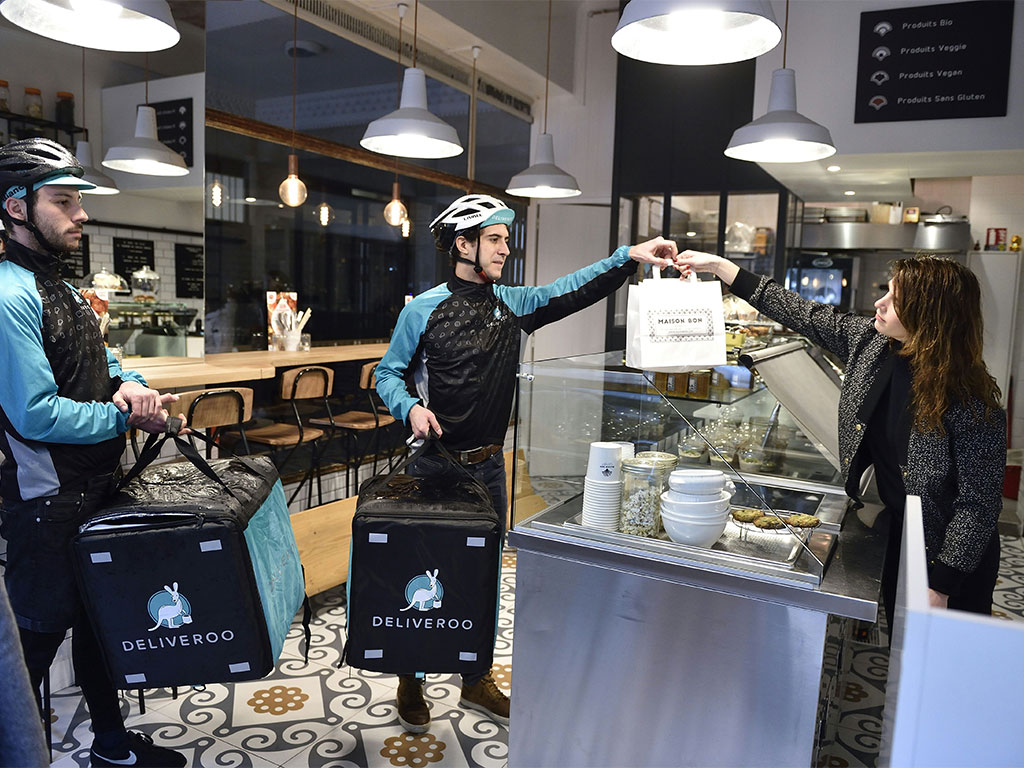Food delivery industry a safe bet for established brands
The food delivery industry offers a safe return for firms that already have a strong customer network and functioning technology. For green start-ups, however, it might be a risk too far in terms of costs and marketing

Deliveroo has found success in helping restaurants make use of previously quiet times, such as Sunday evenings
Competition across the food delivery market is intensifying following the success of start-ups such as Deliveroo, the growth of delivery websites such as JustEat, and the recent launch of UberEats.
More and more, restaurants are working alongside tech companies to increase their customer base, and, more specifically, make the purchase and delivery of food both more accessible and efficient.
Global tech giant Uber introduced UberEats to London earlier this month, following its successful launch in Paris. CEO Travis Kalanick sees food delivery as a natural extension for the network of drivers already on the road.
Eat, drink and be merry
UberEats is currently only available in central London, but the company has plans to expand its customer and restaurant network in the coming weeks. By offering no minimum spend and free delivery for the first month, Uber is hoping to outperform the competition.
Alex Czarnecki, General Manager of UberEats in London, believes the launch will thrive in one of the food capitals of the world. “The UberEats app has been a huge success in every city we’re launched in, and we think Londoners will love it too”, he said. The launch will not only see a boost to the company’s revenue, but a surge in sales for the restaurants that team up with the initiative.
The success behind Deliveroo lies in the fact that it welcomes opportunities for restaurants to increase trade at times that have traditionally been quiet for the industry
The reason UberEats is likely to succeed lies in both its expansive customer base and its technology. It already has access to mapping software, satnavs and its CoreLocation framework. The company only needs to invest a little in its delivery business, as it is already a transportation service and therefore has the ideal platform for launch.
Uber has also fostered an enviable reputation and identity through its many successes, and is an attractive brand partner for any restaurant. Libby Andrews, Head of Marketing at Pho, said: “Uber has nearly two million users in London alone, so we’re excited to be partnering with them for UberEats. Their launch will benefit customers who want to enjoy food at home or at their office by pressing a few buttons on their phone.”
The on-demand economy, of which Uber is a major part, is constantly expanding, and attracts more than 22.4 million users annually and $57.6bn in spending, according to Harvard Business Review. The largest category of all is online marketplaces with 16.3 million monthly consumers, followed by transportation with 7.3 million monthly consumers, and food/grocery delivery at 5.5 million monthly consumers.
Valued at a staggering $62.5bn, Uber joins a crowded food market, competing against growing businesses such as Deliveroo, which has been available in London since 2012. With an estimated 3,000 riders cycling around London delivering food, Deliveroo is expected to hit revenues of £130m this year.
Success and failure
Dan Warne, Deliveroo’s Managing Director for the UK and Ireland, believes the surge in food delivery is due to the hectic lives of customers, who have readily adapted to the on-demand economy.
“We have learnt a great deal about the market in the last three years, innovating to suit customer and restaurant needs through multiple initiatives”, he said.
“We have also seen strong support from the restaurant community. Partnering restaurants see our service as a means to leverage their excess kitchen capacity and existing locations to generate average revenue increases of more than 30 percent.”
The success behind Deliveroo lies in the fact that it welcomes opportunities for restaurants to increase trade at times that have traditionally been quiet for the industry, such as Sunday evenings – one of the busiest times for Deliveroo.
“We want to bring our food delivery experience to as many people as possible across the globe. Right now we are working on expanding our service to new cities, creating more delivery zones and continuing to welcome well-loved restaurants to our platform”, he added.
However, many smaller on-demand companies are struggling, as venture capital investors start to shy away from the delivery sector. Spoonrocket, a US-based food delivery service, was among the first victims of the market battle, and shut down earlier this year after failing to generate substantial revenue.
It seems the food delivery business is a great investment if you already have a strong customer network, but could be too much of a financial risk for start-up businesses.
It is apparent the market will continue to expand, as it is a safe bet for bigger corporations; food delivery is unlikely to suddenly drop in business. However, it is essential that companies entering the market have an existing loyal customer network in order to drive sales and generate profit.













